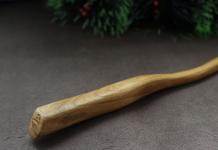Name: Louis XIV de Bourbon
State: France
Field of activity: King of France
Greatest Achievement: Years of reign: from May 14, 1643 to September 1, 1715. Reigned for 72 years, which is an absolute record in Europe.
In every country there is a representative of the royal family who left the most striking mark in history. Some are famous for their foreign policy, others for their longevity, and still others simply for their eccentric actions. And only a few combine all these qualities. One of these kings is the leader of France in the 17th and 18th centuries, Louis XIV.
early years
The future king of France was born on September 5, 1638 in the city of Saint-Germain-en-Laye in the family of the ruler of the kingdom, Louis XIII, and his wife, the Spanish infanta Anna of Austria. At birth he received the nickname "Dieudonné", which means "God Given". And this was indeed true - his parents got married in 1615, while still teenagers (both were 14 years old, which in those days was not considered something terrible - the age of marriage was early).
Louis was the first-born in the family, that is, you can calculate - if the parents got married in 1615, and he was born only in 1638, then Queen Anne could not get pregnant for 23 years. This is truly a gift from God! Two years later, the second son of the crowned couple was born - Prince Philip, Louis's younger brother.
Louis could have had a completely happy childhood, like any prince of the blood of that time, if not for the sad circumstance - the death of his father. Louis died in 1643, leaving the throne to his 5-year-old son. How can a small child rule a huge kingdom? During this period, the mother, Anna of Austria, became regent, striving to pursue her policy and place her people in key positions.
One of them was Cardinal Giulio Mazarin, who replaced Richelieu. He taught Louis history, politics, philosophy, but did not spend much on the child - the king had modest clothes and did not allocate money for entertainment. This was explained by the lack of funds - after all, at that time there was a war with the Fronde (essentially a Civil War within the country).
In 1648, when Louis was 10 years old, the predominantly aristocratic population of Paris rebelled against Mazarin. In an attempt to overthrow the cardinal, they launched a civil war against his supporters - this was called the Fronde. Throughout the long war, Louis XIV suffered many hardships, including poverty and hunger.) An ascetic lifestyle, deprivation and lack of things he needs and are interested in will subsequently develop in Louis a passion for exorbitant spending and a luxurious lifestyle.
While growing up, he first learned what love is - his first lover was Mazarin's niece, Maria Mancini. But, as the famous song says, “no king can marry for love.” First of all, when marrying a prince of the blood (and even more so, a king), the government thinks about political gain. And Louis in 1660 married the Spanish Infanta Maria Theresa of Austria. And then the parents’ story repeated itself - the first years of marriage were full of love and trust, then the young husband lost interest in his other half.
Beginning of reign
While Cardinal Mazarin ruled France, Louis did not show much hope - he was afraid of the wrath of his mentor. But in 1661 the cardinal dies, and Louis comes to the conclusion that now it is his time to rule France. He convenes the Council of State, where he announces that from now on he is the sovereign king. He also utters the now catchphrase: “Do you think, gentlemen, that you are the state? No, the state is me.” We must give him credit - Louis could accurately choose the right people who helped lift France out of the economic hole.
His first goal as an absolute monarch was to centralize power and control France. With the help of his finance minister, Jean-Baptiste Colbert, Louis XIV instituted reforms that were designed to reduce the treasury deficit and promote industrial growth. During his reign, Louis XIV managed to improve the country's taxation system and limit previously haphazard borrowing practices. He also declared members of the nobility exempt from paying taxes.
The king did not forget about culture. Along with changes in government, Louis XIV created a number of programs and institutions to bring more art into French culture. Thus, in 1663 the Academy of Inscriptions and Fine Letters (Académie des Inscriptions et Belles-Lettres) was founded, and in 1666 the Royal Academy of Music. Louis XIV also commissioned Colbert to supervise the construction of the Paris Observatory from 1667 to 1672.
Louis devoted all his free time to government affairs. Brought up at court, a late favorite child, he considered himself God's anointed in the literal sense of the word. Even royal residences seemed to him unworthy of his greatness. He decided to build a new one - for himself. His eyes turned to the small village of Versailles near Paris, where he transformed a modest hunting lodge into a palace of unprecedented luxury and beauty.
The palace at Versailles became his permanent residence in 1682. It was the furnishings of the new home that prompted the king to create rules of court etiquette, which all courtiers must strictly adhere to. Writers, poets, and artists enjoyed special favor from the king. Various productions were often staged at Versailles.
Foreign policy
During his entire reign (meaning since 1661, of course), Louis fought many wars with neighboring and distant European countries. Moreover, the king fought successfully. In 1667, he launched an invasion of the Spanish Netherlands, considering it his wife's rightful inheritance. A year later, the Peace of Aachen was concluded, according to which some lands went to France - Benche, Charleroi, Berg, French Flanders. However, Louis had to make some concessions for this, which contradicted his domineering nature. A few years later, he again dragged the country into a war with Holland - which ended in the complete victory of the kingdom. It gave France a reputation as a formidable adversary in Europe.
Starting from the 1680s, victories in the military field became less and less - Spain, Holland, Austria and Sweden united in an alliance against France. Louis' army was strong and organized, but other countries also trained their warriors and created new weapons. And the war required money - taxes had to be raised. The French began to grumble. The king ordered all the silver from Versailles to be melted down. But the time for victories is over. Under the terms of the peace treaties, France transferred Luxembourg, Lorraine, and Savoy.
One of the last great battles was the War of the Spanish Succession, which began in 1701. England, Holland and Austria opposed France. To wage war, gold from Versailles was now melted down. Taxes were raised, and famine began in the country. France retained Spain, but this was the only gain in the war. The debt to the countries was enormous, the entire burden of payments fell on the shoulders of ordinary people. Throughout the 18th century, discontent with the royal family would accumulate until one day it resulted in revolution.
Another pain point was the question of a successor. In 1711, his son and heir Louis the Dauphin died, then the eldest grandson of King Louis (son of the heir) died. Not counting his daughters, there was only one heir left - the youngest son of Louis the Dauphin, Louis (the future King Louis XV).
In addition to the legitimate children from his wife, the king had sons from his favorite, Madame de Montespan, to whom he gave his surname and appointed to the Council of State.
The Sun King Louis XIV died of gangrene on September 1, 1715 at Versailles, becoming the longest reigning monarch in European history at 72 years. His record has not yet been broken. The king was buried in the Abbey of Saint-Denis.
The French king Louis XIV (1638-1715) remained in history as the author of the saying “I am the state.” A system of state power in which a monarch (king, king, emperor) can make decisions only of his own free will, without any representatives of the people or nobility, is called absolutism. In France, absolutism developed under the father of Louis XIV, Louis XIII (his time is described in the famous novel by A. Dumas “The Three Musketeers”). But Louis the Pope did not rule the country himself; he was more interested in hunting. All matters were decided by the first minister, Cardinal Richelieu. Little Louis was left without a father early on, and until he came of age, the country was ruled by another first minister, also a cardinal, Mazarin. The Queen Mother, Anne of Austria, had a great influence on state affairs. The young king seemed only interested in dancing, balls and music.
But after Mazarin’s death, he matured sharply, did not appoint a first minister, and spent a long time doing business himself every day. His main concern was public finances. Together with the state controller of finances, J. Colbert, the king sought to increase state revenues. For this purpose, the development of manufactories was encouraged, and the history of the famous Lyon silk and tapestries began. It was during the era of Louis XIV that France began to rapidly turn into a trendsetter throughout the world. Even the English enemies tried to copy Parisian styles of clothing and hairstyles (and this was an era of very fancy fashions). Wanting to add shine to his reign, Louis made his court dazzlingly luxurious and surrounded himself with all the arts, like the outstanding rulers of antiquity.
His court playwrights were Moliere, Racine and Corneille, his favorite composer was Lully, and artists, furniture makers, and jewelers created products of unprecedented elegance.
As a child, Louis suffered many unpleasant moments during the uprising of the Parisian townspeople of the Fronde (“Slingshot”). Therefore, he decided to build himself a new luxurious residence, Versailles, outside of Paris. All this required huge expenses. Louis XIV introduced several new taxes, which placed a heavy burden on the peasants.
The rapid industrial development of France came into clear conflict with its medieval way of life, but Louis did not touch the privileges of the nobility and left the class division of society. However, he made great efforts to organize overseas colonies, especially in America. The territories here were named Louisiana in honor of the king.
The Sun King was what the flattering courtiers called the king. However, Louis overestimated his greatness. He revoked the toleration decree of his grandfather, Henry IV, and hundreds of thousands of Protestants, many of whom were remarkable craftsmen, left the country. Having moved to England and Germany, they created a textile industry there, which subsequently successfully competed with the French one. He even quarreled with the Pope, making the French Church independent of Rome. And he fought with all his neighbors. And these wars ended unsuccessfully for France as a whole.
Some territorial acquisitions were too expensive. By the end of the reign of Louis, France entered a time of economic recession, and only memories remained of the former prosperity of the peasants. The heir of Louis XIV was his great-grandson Louis XV, who in turn became famous for the phrase: “After us, even a flood.” The magnificent facade of the Sun King's state hid rotten pillars, but only the French Revolution showed how rotten they were. However, the cultural influence of the country established its European primacy for many centuries.
Death of Louis XIV
Louis XIV died on the morning of Sunday, September 1, 1715. He was 77 years old and reigned for 72 years, 54 of which he ruled alone (1661–1715).
Until his death, he managed to maintain that “decorum”, those strict rules of official etiquette that he himself established. Feeling the approach of death from a gangrene-ridden leg, he played his role as king to the end. On Saturday, August 31, he ordered a gathering of courtiers, from whom he asked forgiveness “for the bad examples that he set for them.” Then he invited the heir to the throne, his five-year-old great-grandson, the future King Louis XV, and said: “My child, you will become a great king. Do not follow my passion for luxurious palaces, nor for wars. Strive to make the life of your subjects easier. I could not do this. and that’s why I feel unhappy.”
The reign of Louis XIV was important not only because of its exceptional length.
Louis XIV wanted and managed to become a “great king”, establishing his personal power and giving the final form to an absolute monarchy. He was also great because, following a policy of prestige, he built the Palace of Versailles, patronized the arts and literature, and waged wars of conquest. In the latter, the results are not so obvious, as evidenced by his “self-criticism” at the end of his life.
With his death we enter a new historical era, and it is noteworthy that his contemporaries were aware of this.
Sun King
At the time of the death of his father Louis XIII in 1643, followed shortly by the death of Prime Minister Richelieu, Louis XIV was not even five years old. His mother Anna of Austria, becoming regent, entrusted the reign to Mazarin. This Italian, who had previously served the Pope, was made a cardinal by Richelieu, although he was not a priest. The country's economy was then experiencing a period of decline. The expenses associated with Richelieu's foreign policy (the war against the Austrian dynasty) brought the poverty of the people to the extreme. Mazarin increases the exactions and thereby increases discontent. The nobility and the Parisian parliament (a judicial institution whose members bought their positions; has nothing in common with the English parliament) considered that the time had come to intervene in politics and limit the royal power in the person of Mazarin. This was the Fronde, of which Louis XIV retained painful memories. He was grateful to Mazarin for suppressing the Fronde and remained in power until his death in 1661.
At this moment, Louis XIV was 22 years old; he had no experience in leading the state. There was slight confusion when he told his advisers that he would henceforth be “his own prime minister.”
He kept his word. Louis XIV fully, consciously and diligently carried out what he called "the craft of the king." He worked for many hours every day, studying matters himself or with one of the ministers.
Realizing the limitations of his capabilities, he listened to the advice of everyone he considered competent, but made decisions alone.
Convinced that his power was from God and that he was not obliged to give any reports to mortals, he wanted to have absolute power and chose the Sun as his emblem, hence his nickname the Sun King, and the Latin words “Nec pluribus impar” (“incomparable”) as his motto. , "above all").
Concern for prestige forced him to devote a significant part of his day to “representation.” He created a personality cult for the king, which was supported by etiquette, in the Spanish manner. This meant that strict ceremony surrounded every act of his life, from rising to going to bed, with the participation of the most distinguished nobles. The latter, who received huge pensions for performing “service” with the king, were dependent on him, and were removed from political power.
Age of Louis XIV
During the reign of Louis XIV, France acquired high cultural authority in addition to political and military authority, to which we will return. She became, in Taine's words, "a source of elegance, comfort, fine style, refined ideas and the art of living." In short, for the propertied classes throughout Europe, she became a model of civilization.
However, all intellectual and artistic life was under royal control; Various “academies” became intermediaries. To the French Academy created by Richelieu, Louis XIV added academies of exact sciences, painting and sculpture, music, etc. Each of them was entrusted with the duty to work for the glory of the king, support established principles and manage their field of activity.
The distribution of pensions to artists, writers, scientists, French and foreign, maintained discipline among them.
This was the golden age of fiction with its classical masterpieces, theater (Corneille, Racine, Moliere), poetry (La Fontaine, Boileau). Success in painting and music is not so brilliant. Lebrun, the court painter, seems quite mediocre. The same can be said about the Italian Lully, who exercised a real dictatorship in music.
The most outstanding work of art of this era was the Palace of Versailles, where Louis XIV, fearing popular movements, moved his residence from Paris. The architect Levo worked on its construction, and after 1676, Mansart. By the end of the reign of Louis XIV it was far from complete.
Foreign policy of Louis XIV
Louis XIV's quest for glory plunged the country into repeated and costly wars with questionable results. Towards the end of his reign, a coalition of European powers rose up against him, which almost crushed him.
He annexed Franche-Comté, taken from Spain, several cities in Flanders, as well as Strasbourg.
In 1700, the last son of Charles V from the senior branch of the Habsburgs died without a direct heir. The power of Charles II extended over Spain with its colonies (America, Philippines), over the Netherlands (present-day Belgium), the two Sicilies and the Duchy of Milan in Italy.
Fearing the collapse of this empire and knowing that France would not tolerate these possessions, as under Charles V, being united with the Austrian lands of the Habsburgs (passed to the junior branch) and with the imperial crown, the dying Charles II bequeathed his possessions to the grandson of Louis XIV, the Duke of Anjou. At the same time, the condition was set that under no circumstances would the crowns of France and Spain unite under the rule of one sovereign. This will is explained by the fact that the Duke of Anjou had rights to the Spanish crown through his grandmother, Maria Theresa, the wife of Louis XIV and the eldest daughter of the Spanish king Philip IV.
Louis XIV sacrificed the interests of France for the sake of the glory of the dynasty, because he had the opportunity, in accordance with the partition plan drawn up by the European powers, to take possession of the Netherlands. He preferred to see a representative of the Bourbon dynasty on the throne of Spain (by the way, they still reign there to this day). However, the Duke of Anjou, having become the Spanish king under the name of Philip V, retained only Spain and its colonies, losing all his European possessions to Austria.
Absolute monarchy
The form of absolute monarchy established by Louis XIV was maintained until the end of the "old order".
Louis XIV did not allow the titled nobility to come to power, “taming” them with court positions.
He nominated people of low birth as ministers, generously gifting them and rewarding them with titles of nobility. Therefore, they were completely dependent on the will of the king. The most famous are Colbert, Minister of Finance and Economy, and Louvois, Minister of War.
In the provinces, Louis XIV limited the power of governors and left them only honorary duties. All real power was concentrated in the hands of the “intendants of finance, justice and police,” whom he appointed and removed at his whim and who, in his words, were “the very king in the province.”
In the religious sphere, Louis XIV sought to impose his will and opinions on everyone. He came into conflict with the Pope regarding control of the Catholic Church in France. He persecuted the Jansenists, uncompromising and strict Catholics. In 1685, Louis XIV revoked the Edict of Nantes, by which Henry IV granted religious freedom to Protestants. Now they were forced to change their faith, many emigrated, which led to desolation of entire regions. Despite all efforts, Protestantism was never eradicated in France.
End of the reign of Louis 14
Constant wars, and especially the last one, called the War of the Spanish Succession, ruined the country. Poverty was exacerbated by several poor harvest years, and in particular by the freezing winter of 1709 (temperatures dropped below 20° throughout France throughout January, with snow remaining until the end of March).
The burden of taxes fell almost exclusively on the "non-nobles", while the clergy, nobles and part of the bourgeoisie were exempt from them. Louis XIV tried at the end of his reign to introduce taxes paid by everyone depending on income (capitation, tithe), but the privileged classes very soon freed themselves from them, and the portion that fell on others increased even more.
Louis 14 – the Sun King – is the most charismatic monarch of France. The era of his reign, which lasted 72 years, is called by historians the “Great Age”. The French king became the “hero” of numerous novels and films. Even during his lifetime, legends were made about him. And the monarch was worthy of them.
It was King Louis 14 who came up with the idea of building a grandiose palace complex on the site of a small hunting lodge. The majestic Versailles, which has amazed the imagination for centuries, became not just the residence of the monarch during his lifetime, here he accepted his death with dignity, as befits an august person.
The greatest of the Bourbon dynasty - “God-given” Louis 14
King Louis 14 de Bourbon is the long-awaited heir. That is why at birth he received the “iconic” name - Louis-Dieudonne - “God-given”. The era of his rule over France began when little Louis was barely five years old. The regents were Anna of Austria, the mother of the Sun King, and the well-known Cardinal Mazarin, who tried with all his might to connect his family with family ties with the Bourbons. Interestingly, the skillful strategist almost succeeded.
King Louis 14 inherited from his mother, a proud Spaniard, strength of character and enormous self-esteem. It is quite natural that the young monarch did not “share the throne” with the Italian cardinal for a long time. Even though he was his godfather. Already at the age of 17, Louis first showed disobedience, expressing dissatisfaction in front of the entire French parliament. “The State is me” is a phrase that characterizes the entire era of the reign of King Louis 14.
Unsolved mysteries of the biography of Louis de Bourbon
The biggest mystery remains the very birth of King Louis 14. According to the legend, which many believed in that era, Anne of Austria gave birth to not one, but two Dauphins. Did Louis have a twin brother? Historians still doubt this. But in many novels and even chronicles there are references to the mysterious “Iron Mask” - a man who, by order of the king, was forever hidden from human eyes. This decision can be considered justified, because the twin heirs are the cause of political scandals and upheavals.
King Louis 14 did have a brother, but the younger one was Philippe. The Duke of Orleans did not lay claim to the throne and never tried to intrigue against the Sun King. On the contrary, he called him “my little daddy”, since Louis constantly tried to take care of him. Photos of portraits of two brothers give a clear idea of their mutual sympathy.
Women in the life of Louis de Bourbon - favorites and wives
Cardinal Mazarin, having become the godfather of King Louis 14, wanted to get even closer to the Bourbon dynasty. The clever intriguer never forgot that he came from a rather seedy Italian family. It was one of the cardinal’s nieces, brown-eyed Maria Mancini, who became the first love of young Louis 14. The King of France was twenty at that time, his beloved was only two years younger than him. The court whispered that the monarch from the Bourbon dynasty would soon marry for love. But fate decreed otherwise.

Maria Mancini - the first love of King Louis 14
Maria and Louis had to separate simply because, for political reasons, King Louis 14 needed to marry Maria Theresa, the daughter of the Spanish king. Mazarin very quickly “attached” his niece, marrying her to an Italian prince. It was from the moment when the young monarch was forced to enter into a political marriage that his series of love affairs began.
Historians believe that King Louis 14 de Bourbon inherited his amorousness and ardent temperament from his grandfather, Henry 4. But the Sun King was more prudent in his hobbies: none of his favorites influenced the politics of France. Did the wife know about the monarch’s many love interests and his illegitimate children? Yes, but Maria Theresa was a proud Spaniard and the daughter of a king, so she remained unperturbed - Louis 14 did not hear any tears or reproaches from her.

Queen Maria Theresa - first wife of King Louis 14
The queen died much earlier than her husband. Literally a few months after her death, King Louis 14 entered into a second marriage. With whom? The chosen one was the governess of his illegitimate children born to the Marquise de Montespan, Françoise de Maintenon. The woman was older than Louis; before that, she was married to the then famous writer Paul Scarron. At court she was known only as “the Widow Scarron.” It was with Françoise that King Louis 14 “met old age,” it was she who became his last passion, and it was her few whims that he fulfilled throughout all the years of marriage.
Interesting facts from the biography of Louis 14 – the Sun King
The excellent appetite of Louis 14 was known not only to the entire court, even ordinary residents of Paris knew about it. The dishes that the monarch ate at dinner could feed not only all the queen's ladies-in-waiting, but also his retinue. And this meal was not the only one. The king constantly satisfied his hunger at night, but he did it alone; his valet secretly brought him food.
King Louis 14 almost always fulfilled the whims of his favorites, but with regard to his second wife, the king outdid himself. When Françoise wished to ride a sleigh in the summer heat, her loving husband fulfilled her whim. Literally the next morning, Versailles sparkled with “snow,” which was perfectly replaced by tons of salt and sugar.
King Louis 14 adored luxury. Historians believe that this was due to the fact that as a child his expenses were carefully controlled by Mazarin, and he grew up completely “not like a king.” When Louis became a "state", he was able to satisfy his passion. There were about 500 luxurious beds in the residences of the monarch. He had more than a thousand wigs, and his clothes were made by 40 of the best tailors in France.
In contact with
04.02.2018
Louis XIV is a monarch who ruled France for over 70 years. True, the first years of his reign can be called such only formally, since he received the throne at the age of 5. Royal power was then absolute; the “anointed one of God” was allowed to control all spheres of life of his subjects. But why did Louis XIV receive the nickname "Sun King"? Is it only because of this greatness? After all, both before Louis and after him, the throne was occupied by many individuals, but no one else claimed the “solar” title. There are several versions.
Version one
The most common version is this. Representatives of the royal house at that time were very interested in the theater. The young king himself danced in ballet - at the Palais Royal Theater, from the age of 12. Of course, he was given roles corresponding to his high position, for example, the god Apollo, or even the Rising Sun. It is quite possible that the nickname was “born” in those years.
Version two
The capital of France regularly hosted events called the “Carousel of the Tuileries”. They were something between knightly tournaments, sports competitions and masquerade.
In 1662, a particularly magnificent ceremony took place, in which Louis took part. In the hands of the king there was a huge shield, symbolizing the solar disk. This was supposed to indicate the divine origin of the ruler, and also instill in the subjects confidence that the king would protect them in the same way that the sun protects life on Earth.
Version three
The next option is related to a funny episode during a walk. One day, Louis, as a 6-7 year old child, went to the Tuileries Garden with his courtiers. In a huge puddle he saw the reflection of the shining sun (it was a fine day). “I am the sun!” - the child shouted in delight. Since then, the king's retinue began to call him that - first as a joke, and then seriously.
Version four
Another version explains the appearance of the nickname by the wide scope of the king’s actions, significant for France. Under him, economic prosperity began (though not for long), trade was encouraged, the Academy of Sciences was created, and the active development of the American colonies was underway. In addition, Louis pursued an offensive foreign policy, and his first campaigns were successful.
Version five
And finally, here is another theory regarding the royal nickname. The “Sun” was any monarch who was crowned during the regency period (that is, in childhood). That was the tradition. Louis simply became another “sunny” child ruler, and the nickname automatically stuck with him (maybe the courtiers often talked about him among themselves, using this term).


























